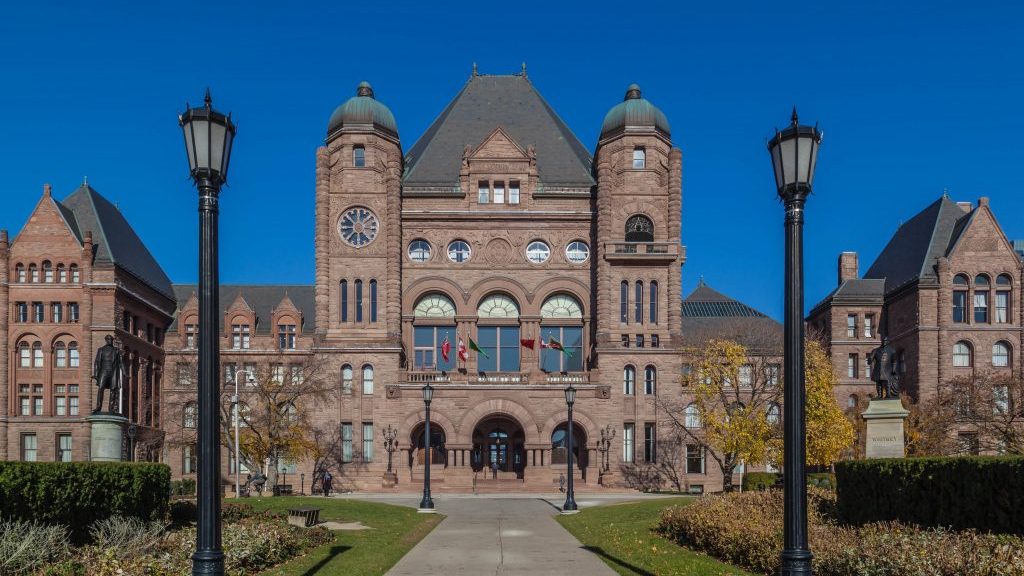TORONTO — The economic uncertainty created by U.S. President Donald Trump’s tariffs permeated Ontario’s throne speech Tuesday, a ceremonial offering intended to set the new provincial government’s agenda and tone.
The speech, delivered by Lt.-Gov. Edith Dumont, kicks off the new session of Premier Doug Ford’s third majority government. It leaned heavily on the theme of Ford’s successful election campaign, which tied the tariff threat to nearly every sector, from mining to manufacturing to housing.
“For decades, Ontario and Canada have relied on free trade with the United States to deliver unprecedented economic growth and prosperity,” the government said in its speech.
“The last few months, however, have taught us that we can no longer assume the benefits of our economic partnership with the United States. The strength of Ontario’s economy and the social programs it funds can no longer depend on a partner that has proven itself to be fundamentally unreliable. Instead, your government will build an economy that is more competitive, more resilient and more self-reliant.”
The speech touted the importance of new railways, highways, airports and seaports, as well as new pipelines, promised an investment of “unprecedented amounts in new energy production,” and signalled upcoming legislation in trade and mining.
It also included Ford’s intention to get a tunnel built under Highway 401 to tackle gridlock in the Greater Toronto Area, a plan not yet costed out, but to which the premier appears fully committed.
The government’s first bill is expected to be on interprovincial trade, as Ford has touted the benefits of breaking down internal barriers in order to bolster the economy against the external economic threats.
“Goods produced and services provided in other provinces and territories will be treated the same in Ontario, provided other provinces and territories do the same,” the government said in the speech.
“Hard-earned credentials from other provinces and territories will be recognized automatically, ensuring highly skilled workers from elsewhere in Canada can get on the job faster, fill key gaps in Ontario’s labour force and help grow our economy.”
The government’s second order of business, the speech said, will be to table a bill that would give the government authority to designate regions where multiple critical mineral deposits are present, including the Ring of Fire region, as regions of “strategic importance.”
“Within the boundaries of these regions, proponents that meet high operating, safety and environmental standards will benefit from significantly streamlined permitting and approvals, alongside an uninterrupted commitment to meeting duty to consult requirements,” the government said in its speech.
The government is also indicating it will spend more on housing-enabling infrastructure, work with municipalities to lower development charges, and standardize the cost and timelines of building homes, but one key housing promise notably absent.
The speech said the government will work to “unlock new homes,” but without a mention of the goal of 1.5 million homes that the government used to frequently tout.
Ontario has not yet met any of its annual targets toward that goal, though it came very close in 2023 after it started counting long-term care beds. Data published Tuesday by the Canada Mortgage and Housing Corporation showed that housing starts in Ontario in March were down 46 per cent, year over year, for communities with 10,000 or more people.
Municipalities will also get more help to end homeless encampments, the speech said. The government intends to re-introduce legislation it tabled at the end of the last session, but did not pass, toward achieving that goal.
“Your government stands firm in its commitment to do whatever is necessary, and to use whatever legal tools might be required, to help municipalities get the job done,” the speech said.
©2025 The Canadian Press




Recent Comments